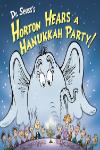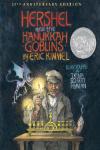The Odd Woman and the City: A Memoir by Vivian Gornick

Buy this book at Amazon or for Kindle
A memoir of self-discovery and the dilemma of connection in our time, The Odd Woman and the City explores the rhythms, chance encounters, and ever-changing friendships of urban life that forge the sensibility of a fiercely independent woman who has lived out her conflicts, not her fantasies, in a city (New York) that has done the same. Running steadily through the book is Vivian Gornick’s exchange of more than twenty years with Leonard, a gay man who is sophisticated about his own unhappiness, whose friendship has “shed more light on the mysterious nature of ordinary human relations than has any other intimacy” she has known. The exchange between Gornick and Leonard acts as a Greek chorus to the main action of the narrator’s continual engagement on the street with grocers, derelicts, and doormen; people on the bus, cross-dressers on the corner, and acquaintances by the handful. In Leonard she sees herself reflected plain; out on the street she makes sense of what she sees.
Written as a narrative collage that includes meditative pieces on the making of a modern feminist, the role of the flaneur in urban literature, and the evolution of friendship over the past two centuries, The Odd Woman and the City beautifully bookends Gornick’s acclaimed Fierce Attachments, in which we first encountered her rich relationship with the ultimate metropolis.
The Incurable World of Vivian Gornick
The Odd Woman and the City’ proves the memoirist is a peer of Kazin, Howe, and other great chroniclers of Jewish America
All you have to do to dispel that nostalgia, however, is to turn to the memoirs of the Jewish writers who grew up in the immigrant ghetto and managed to escape it. The classic example is A Walker in the City, in which Alfred Kazin compares the fabled warmth of immigrant Jewish life to a fire that always seemed about to incinerate his Brownsville tenement. Kazin’s long walks through Brooklyn and Manhattan, his romantic rhapsodies about the Brooklyn Bridge, his growing love of American literature and the King James Bible, were all forms of rebellion against a Jewish milieu that constricted the spirit instead of feeding it. Irving Howe, in his memoir A Margin of Hope, sounds a similar note, with an equal emphasis on walking. As teenagers, Howe and his friends would walk and talk endlessly, as if to enact the escape from home they couldn’t yet manage in real life.

















